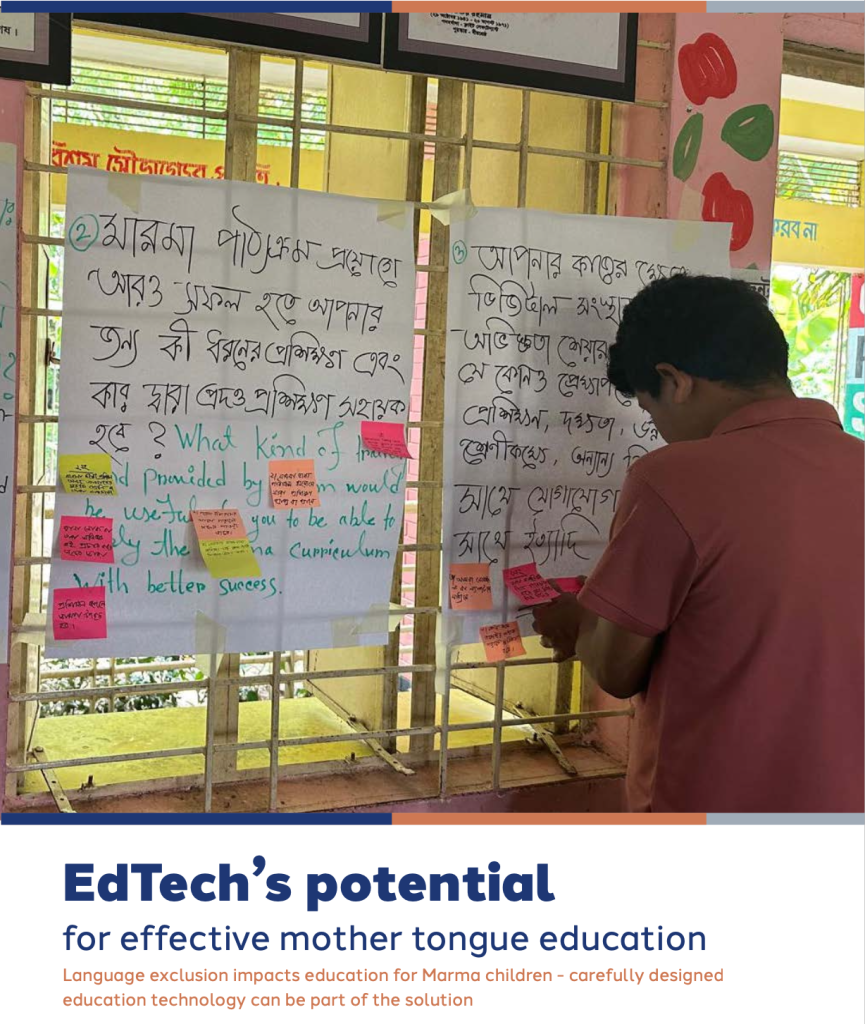Read the full research report here.
Read the full research report in Bangla here.
The Marma community is the second largest Indigenous community in the Chittagong Hill Tracts (CHT) region of Bangladesh, numbering around 300,000. Yet many Marma struggle to become literate in their first language, and Marma teachers struggle to teach reading and writing skills for Marma. The Government of Bangladesh has made efforts to implement mother tongue education (MTE) for pre-primary and primary schools, such as publishing and distributing textbooks in Marma and other Indigenous languages since 2017. But policy issues, lack of resources, patterns of exclusion, and lack of support for teachers mean MTE is still not a reality for the Marma community. Compounding educational, social and economic exclusion such as low connectivity, poverty rates, high dropout rates and resulting low employment opportunities make this more difficult.
This research explored the problems – and potential solutions – for Marma teachers from Khagrachari District of the CHT face in implementing MTE. We aimed to find out how technology – in particular language technology – could help bring Marma into the classroom and improve educational outcomes for Marma children. We heard from Marma teachers at both pre-primary and primary level, working in government schools in multilingual and monolingual settings in urban and rural locations. We also heard from other stakeholders such as education officers, experts from non governmental organizations and National Curriculum and Textbook Board (NCTB) Marma textbook authors.
This study was funded by the Department of Foreign Affairs and Trade Australia and conducted by CLEAR Global, a nonprofit organization working to help people get information and be heard, whatever language they speak. For more information contact us at info@clearglobal.org.
